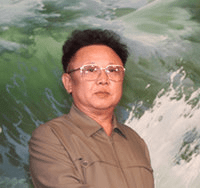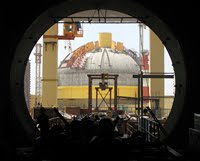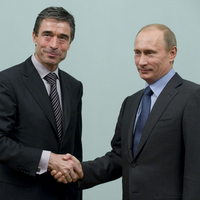Earlier this month, the U.S. Navy forced the M/V Light, a Belize-flagged North Korean vessel en route to Myanmar, to return home, invoking the Proliferation Security Initiative (PSI), an effort to stop trafficking in nuclear materials. In an email interview, Mark J. Valencia, a senior associate at the Nautilus Institute, discussed the operations and effectiveness of the PSI. WPR: Briefly, how does the Proliferation Security Initiative operate? Mark J. Valencia: The PSI does not create a new legal framework; rather, it uses existing national authorities and international law to achieve its goals. Initially, 11 nations signed on to the “Statement […]
WMD Archive
Free Newsletter

The Asan Institute for Policy Studies held its first Asan Plenum in Seoul, South Korea, from June 12-15. The plenum, which the institute plans to make an annual event, gathered representatives of the world’s leading think tanks to discuss a single global challenge, which will vary from year to year. The goal is for the dialogue to then influence the policies of the world’s governments toward the chosen issue. This year’s plenum addressed “Our Nuclear Future,” with the goal of providing “a much-needed comprehensive reassessment of safety and security issues which have crucial implications for our nuclear future.” Some 250 […]

After almost two years of intensive lobbying by New Delhi, the Nuclear Suppliers Group (NSG) — the global watchdog of the sensitive nuclear trade — is finally considering India for membership. The issue has been incorporated as a special agenda item for discussion in the NSG plenary meeting scheduled for late June. The major member states, including the U.S., Germany, France and Britain, have all indicated their support for India’s candidacy. India’s quest for NSG membership raises serious questions for the nuclear nonproliferation regime, however. According to criteria set by the NSG, only signatories to the Nuclear Non-Proliferation Treaty (NPT) […]

During the Cold War, the U.S. installed 7,000 nuclear weapons in Europe because of the perceived military imbalance in favor of the Soviet Union. European governments, unlike their publics, accepted them with the understanding that free riding in a military alliance had its limits. But these tactical nuclear weapons, some of them much more powerful than the Hiroshima bomb, led to regular friction within NATO. Since the implosion of the USSR and the Warsaw Pact, more than 90 percent of these weapons have been withdrawn, silently and unilaterally or in a reciprocal way. Today, a total of 200 weapons remain […]
